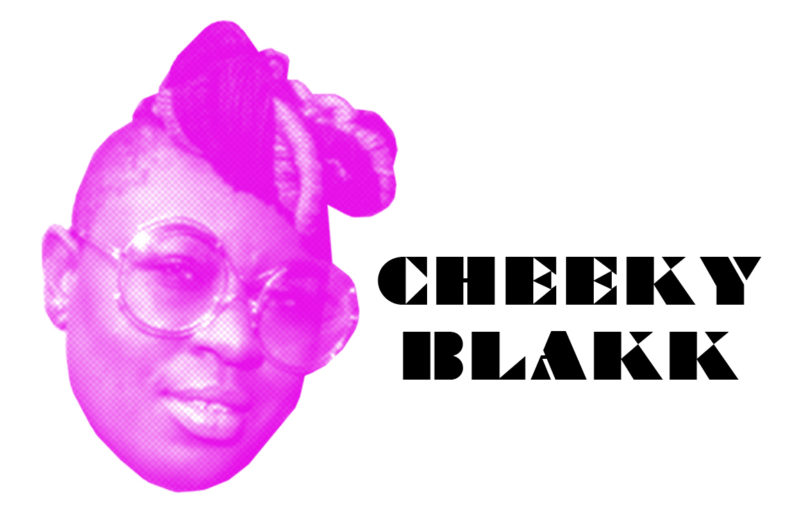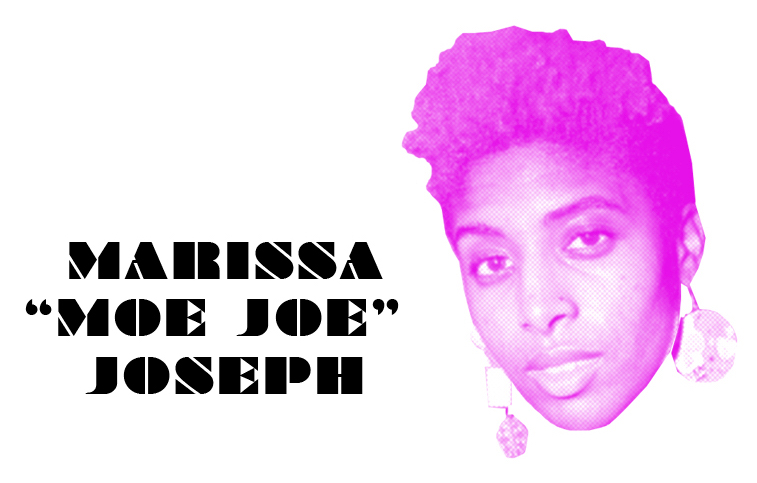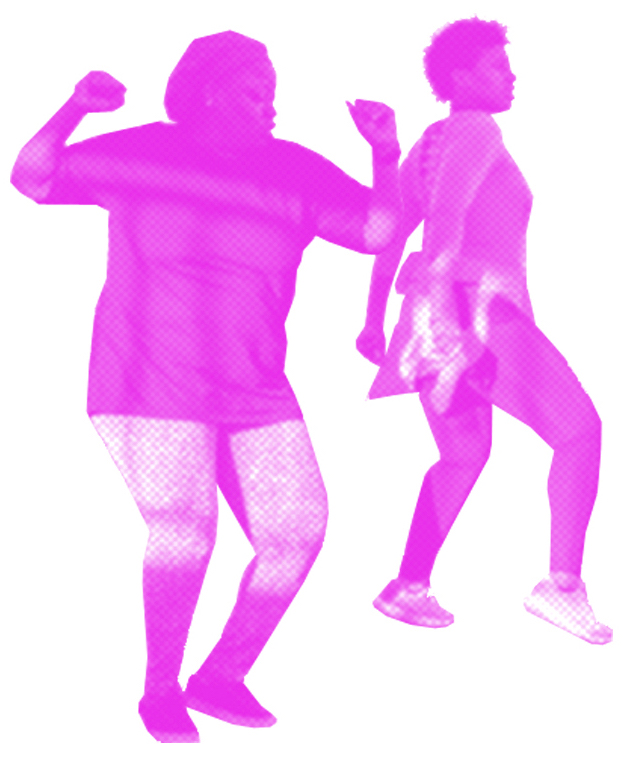Editor’s Note: The following series “Dance!” is a week-long series curated by Gabriela Taras as a part of the Digital Research Internship Program in partnership with ViaNolaVie. The DRI Program is a Newcomb Insitute technology initiative for undergraduate students combining technology skillsets, feminist leadership, and the digital humanities.
This curation focuses on dance, music, and arts in New Orleans. Due to our lively culture, there’s a lot to do even as the weather is getting colder!
New Orleans bounce has become even more popular since Drake released a few bounce songs this previous year with local artist, Big Freedia. Though bounce is often seen as sexual, it is also empowering and promotes fitness, which you can find in this article that was originally published on ViaNolaVie on May 22, 2017.

Image courtesy of Cheeky Blakk.
Originating in New Orleans in the late 80s, Bounce has become synonymous with New Orleans’ individuality. The hip-hop sub-genre blends high-energy beats with skat-like vocals creating a demonstration of music and dance. When there’s bounce music playing, there’s bounce dancing happening. And within bounce’s music and motion, hypersexuality runs throughout. Sexually charged lyrics of songs, such as Cheeky Blakk’s Let Me Get That Outcha, and suggestive dance moves, like twerking, give bounce a reputation of being too inappropriate for most. However, there is more to bounce than raunch.
The raw and unfiltered Cheeky Blakk holds nothing back, and her music reflects just that. If she censored herself and her music, it would lose all its authenticity, as well as relatability. Blakk uses sex as a universal language to help listeners interpret how she wants them to move. “When I use the sexual terms, they get it,” Blakk explained. “‘Work them hips, girl. Work them thighs. Bend that ass over and exercise’… all of that is movement.”

Image courtesy of Cheeky Blakk.
Let’s be real, most people have sex or at least know what movements are involved. With the aid of Blakk’s and other bounce artist’s lyrics you get an idea of how to move to bounce, whether you’re a skilled dancer or not. Consequently, bounce concerts become spectacles of highly sexual dancing.
Though, just as New Orleans has a lot more to offer than Bourbon street, bounce is not just about sex. Louisiana and New Orleans culture emphasizes participation to join everyone together, and bounce does not differ from the communal nature of New Orleans. Bounce uses call-and-response lyrics as a tool to get the audience singing and dancing along. Other hip-hop and rap genres separate performer and audience, and bounce eliminates this hierarchy.
Despite bounce creating spaces for everyone to experience and contribute, opponents still scrutinize bounce for its erotic intensity and associate this with a “low-class” lifestyle.
Critics denounce it and deem bounce as entertainment only for the underprivileged or unrefined, while lumping black people into the same category. Even those who dip their toes in bounce, continue to separate themselves from it. “There are a lot of people who come to bounce fitness who would not do bounce, or what they consider ‘bounce dancing,’ in a club” Joseph says.
Although discriminators continue to other themselves from it, bounce will remain an equalizer joining everyone of all backgrounds and will accept converts anytime.

Image courtesy of Cheeky Blakk.
Those who do let go will find it empowering to embrace their sexuality through bounce. When Cheeky Blakk started her work, it was still unconventional for female artists to be outwardly sexual. By not adhering to social norms of female modesty, her music challenges antiquated patriarchal roles expected of women. Hip hop also tends to be dominated by the heterosexual male image and misogyny with women’s place beneath him. But when Cheeky calls out, “Do the ladies rule this mother sucker,” you respond “Hell yeah!” And when she yells, “Do the fellas rule this mother sucker,” you better respond “Hell no!” Blakk makes the rules for herself and encourages other women too.
But bounce isn’t solely about women’s sexual liberation. It’s for anyone to celebrate themselves, their bodies and their sexuality. For example, Joseph’s bounce fitness class helps attendees to feel more comfortable in their own bodies, remove preconceived notions of how people should (or shouldn’t) move and promote overall confidence.
Joseph is from New Iberia outside of New Orleans, and grew up listening to bounce and going to bounce shows. For Joseph, bounce was instrumental for her own personal growth. She says,
“All of us have been in that space growing up where we are trying to find our identity sexually. A lot of times music, unfortunately and fortunately, is that space where we are trying to figure out and navigate who we are sexually through that process…Whenever you’re going through these new changes and adventures with your body, these artists they help you with that process of finding out who you are sexually.”
Bounce removes stigmas around sexuality and hides nothing. As a result, it’s an alternative haven for artists that don’t fit into the mainstream and accepts those discriminated against by the hip-hop industry. In addition to giving a platform for the female rapper’s voice, bounce has a growing LGBTQ community with gay and transgender artists, like Big Freedia, becoming staples within the genre.
Bounce has gained popularity and recognition, but its hypersexuality will remain controversial and keep it from becoming the mainstream beyond New Orleans. Just look at the public’s reaction to Miley Cyrus’ “twerking.” Some believe for bounce to spread and become a respected genre, it would have to change and specifically tone down it’s sexuality. But would it still be bounce?
 NOLAbeings Multimedia artist Claire Bangser created NOLAbeings as a portrait-based story project that marries...
NOLAbeings Multimedia artist Claire Bangser created NOLAbeings as a portrait-based story project that marries...  Voodoo in New Orleans: Reviving history: New Orleans fortune telling This article takes a deep dive into the history of Voodoo in New Orleans, its hybridization with Catholicism, and its present-day place in the city's culture. The author visits fortune-tellers in the French Quarter, using their guidance as a tool for introspection rather than a deterministic predictor of the future. Through her experiences in New Orleans, the author feels a mystical connection to both the past and the future.
Voodoo in New Orleans: Reviving history: New Orleans fortune telling This article takes a deep dive into the history of Voodoo in New Orleans, its hybridization with Catholicism, and its present-day place in the city's culture. The author visits fortune-tellers in the French Quarter, using their guidance as a tool for introspection rather than a deterministic predictor of the future. Through her experiences in New Orleans, the author feels a mystical connection to both the past and the future. 